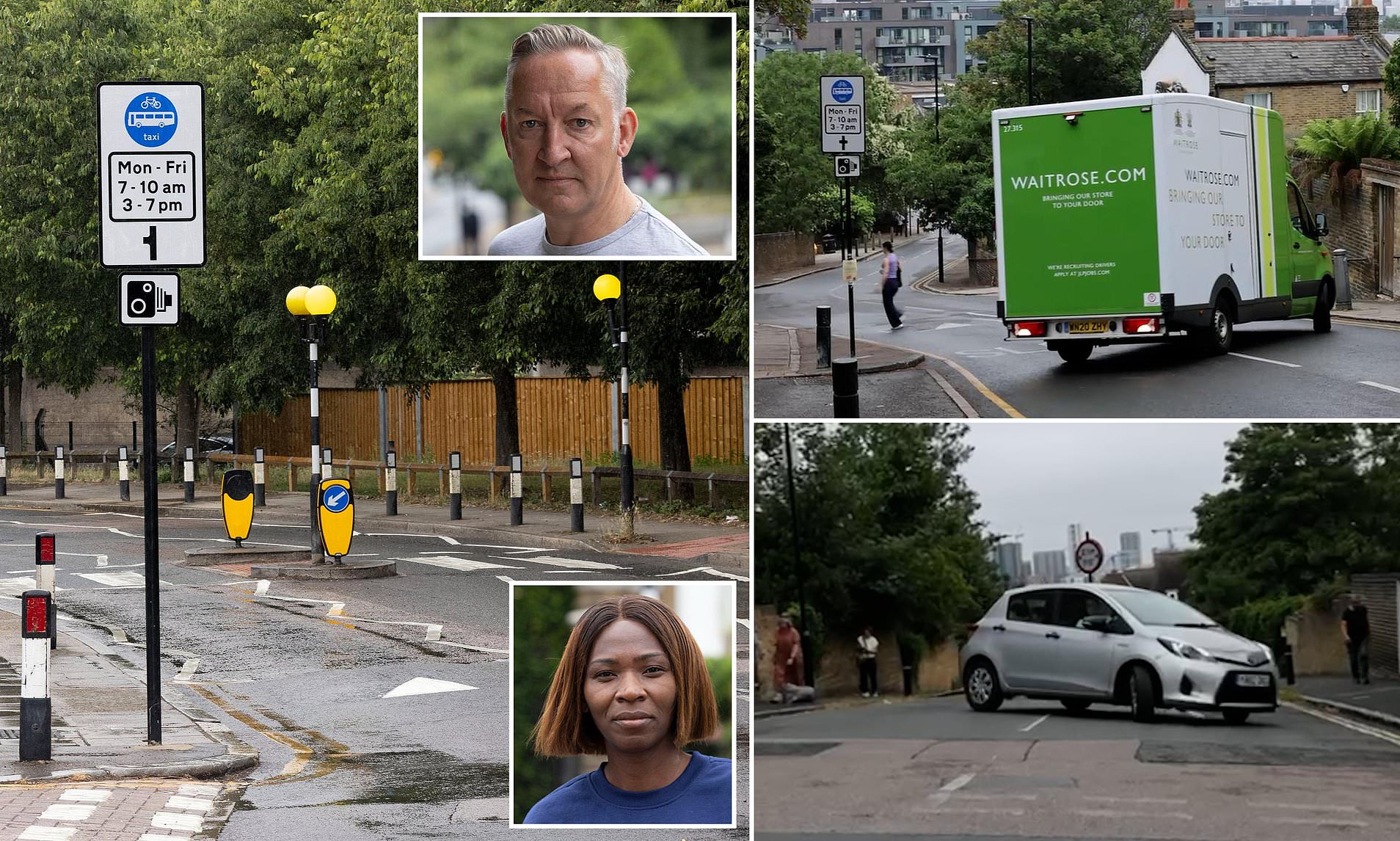Chaos and Frustration in East Greenwich Over Low Traffic Neighbourhoods
Residents of East Greenwich, south-east London, are facing growing frustration over the implementation of Low Traffic Neighbourhoods (LTNs), which have led to increased travel times, disrupted daily routines, and a surge in traffic congestion. The scheme, enforced by cameras, has resulted in £16,500 in fines per day for the local council, according to reports.
The LTNs on Westcombe Hill, Vanbrugh Hill, Halstow Road, and Maze Hill have caused significant inconvenience for locals, with many forced to take longer routes to avoid hefty fines. MailOnline footage captures drivers making abrupt turns, awkward diversions, and even backing out of restricted roads in panic. One van braked suddenly before turning around, while a Waitrose truck made an unexpected detour. A laundry delivery lorry also attempted to drive down a restricted road before quickly reversing.
Between January and May, the council issued 47,836 penalty notices, generating £2.5 million in fines. For residents like Irene Asah, 48, the impact is deeply personal. She used to drop her son off directly outside his school but now must park several blocks away and let him walk the rest of the way. With multiple responsibilities, including dropping off her daughter at secondary school and commuting to work, she finds the situation overwhelming.
“I wish I could drop him straight to the school entrance,” she said. “It would be easier and more secure, but I don’t have time.” The extra journey time has led to her arriving late for pick-up, causing tension with the school.
Colin Gifford, 55, who lives at the top of Vanbrugh Hill, faces similar challenges. His usual route to the Blackwall Tunnel is blocked by the LTN, forcing him to take a longer path during rush hour. “It adds 20 minutes to my commute,” he said. While he acknowledges the benefits for residents living on the restricted roads, he feels the system doesn’t make sense for others.
Kirsty Dunlop, 46, highlights how the LTNs have disrupted her access to the Blackwall Tunnel. What used to take two minutes now requires a long detour, adding unnecessary stress to her daily routine. She also criticized the lack of clarity around the rules, citing an instance where a neighbor was fined for driving through Halstow Road just one minute before the restrictions began. “They told her it doesn’t matter,” she said.
The LTNs have also affected public transport. Buses struggle to navigate narrow roads, leading to delays and frustration for passengers. Marianne Chapman, 39, lives on Eastcombe Avenue, one of the first roads past the Westcombe Park LTN. She noted that the 380 bus can no longer reach her street due to heavy traffic. “The busses physically can’t do the turn,” she said.
Gareth Morgan, 46, described how he now has to be cautious about his routes and use public car parks because he lacks a parking permit. He also expressed concern over how the fines are being used. “Where is this money going?” he asked. “Is it being spent on environmental initiatives or just added to the council’s budget?”
Many residents feel the LTNs are not only inconvenient but also divisive. Some avoid discussing the issue with neighbors who support the scheme, while others question whether it is a money-making initiative. One man remarked, “London is not Amsterdam. Is this some kind of money-making scheme?”
Despite the criticism, not all residents are opposed to the LTNs. Donald Reid, 65, supports the scheme, claiming it has reduced congestion and pollution. “It makes the area nice to walk around,” he said. He believes the shift towards walking and cycling is essential for achieving net zero goals.
Councillor Matt Hartley, Leader of the Greenwich Conservatives, criticized the LTNs as poorly implemented, with confusing signage and no visible improvements in air quality. “Labour’s ideological war on drivers continues to hurt people here,” he said. “The fines are rolling in, but there’s no sign of the promised benefits.”
As the debate continues, residents remain divided. Some see the LTNs as a necessary step toward greener transportation, while others argue they create more problems than they solve. With concerns about fairness, transparency, and the use of fine revenue, the future of these schemes remains uncertain.







